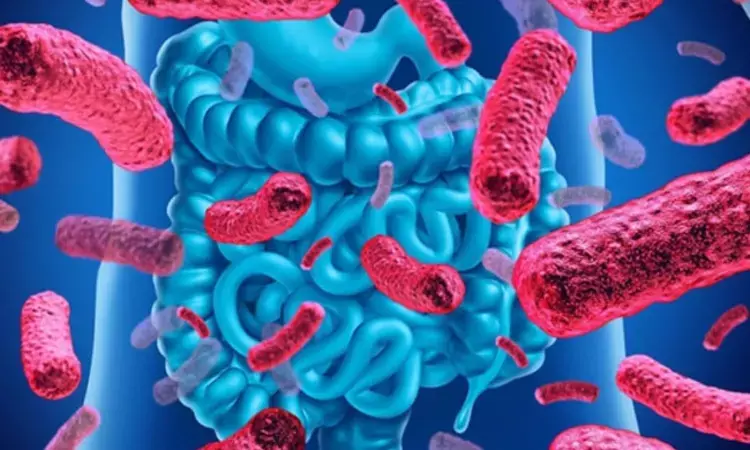- Home
- Medical news & Guidelines
- Anesthesiology
- Cardiology and CTVS
- Critical Care
- Dentistry
- Dermatology
- Diabetes and Endocrinology
- ENT
- Gastroenterology
- Medicine
- Nephrology
- Neurology
- Obstretics-Gynaecology
- Oncology
- Ophthalmology
- Orthopaedics
- Pediatrics-Neonatology
- Psychiatry
- Pulmonology
- Radiology
- Surgery
- Urology
- Laboratory Medicine
- Diet
- Nursing
- Paramedical
- Physiotherapy
- Health news
- Fact Check
- Bone Health Fact Check
- Brain Health Fact Check
- Cancer Related Fact Check
- Child Care Fact Check
- Dental and oral health fact check
- Diabetes and metabolic health fact check
- Diet and Nutrition Fact Check
- Eye and ENT Care Fact Check
- Fitness fact check
- Gut health fact check
- Heart health fact check
- Kidney health fact check
- Medical education fact check
- Men's health fact check
- Respiratory fact check
- Skin and hair care fact check
- Vaccine and Immunization fact check
- Women's health fact check
- AYUSH
- State News
- Andaman and Nicobar Islands
- Andhra Pradesh
- Arunachal Pradesh
- Assam
- Bihar
- Chandigarh
- Chattisgarh
- Dadra and Nagar Haveli
- Daman and Diu
- Delhi
- Goa
- Gujarat
- Haryana
- Himachal Pradesh
- Jammu & Kashmir
- Jharkhand
- Karnataka
- Kerala
- Ladakh
- Lakshadweep
- Madhya Pradesh
- Maharashtra
- Manipur
- Meghalaya
- Mizoram
- Nagaland
- Odisha
- Puducherry
- Punjab
- Rajasthan
- Sikkim
- Tamil Nadu
- Telangana
- Tripura
- Uttar Pradesh
- Uttrakhand
- West Bengal
- Medical Education
- Industry
Probiotic Intake Reduces Harmful Microorganism Colony on Dentures: Study

A recent clinical study published in The Journal of Prosthetic Dentistry highlighted the potential of probiotics in reducing harmful microbial colonization on dentures and surrounding oral regions, presenting promising implications for oral health and denture hygiene.
The accumulation of microorganisms on complete dentures can lead to various health issues, making it essential to prevent the colonization of these harmful pathogens. While maintaining good oral hygiene is critical, studies have explored whether the intake of probiotics can effectively reduce harmful microbiota in the oral cavity.
This study was conducted on 61 edentulous participants wearing complete dentures to determine the efficacy of probiotics in reducing microbial colonization. The study focused on 4 specific probiotics namely, Lactobacillus acidophilus, Lactobacillus rhamnosus, Lactobacillus casei, and Bifidobacterium bifidum. These probiotics are known for their beneficial effects on gut health, but their impact on oral health has been less clear.
The participants were asked to wear their dentures as usual and samples were collected from the palate, cheek, tongue, and denture surface using sterile erasers. The microbial count was determined using a method that involved spread plating and calculating the bacterial colony-forming units (CFU) per milliliter, adjusted with a dilution factor. The samples were taken both before and after the administration of the probiotic regimen.
The study used statistical analyses, including the Wilcoxon test, Kruskal–Wallis, and Mann–Whitney U tests to compare the microbial counts before and after probiotic intake. A significance level of α=.05 was used to assess the results.
The results found a significant reduction in microbial counts in the oral regions, including the tongue, palate, and cheek, after probiotic intake. The reduction in microbial load was statistically significant across most areas sampled, demonstrating that probiotics could effectively decrease the colonization of harmful microorganisms.
However, one exception was observed on the denture surface when tested using malt medium, where no significant reduction in microbial count was observed. This suggests that while probiotics can help manage microbial colonization in some areas of the mouth, their efficacy may vary depending on the specific environment or medium.
Overall, the outcomes of this study suggests that probiotics may play a potential role in improving oral health and maintaining denture hygiene by reducing harmful microbial colonization. Given the diversity of the oral microbiota, this research emphasize the need for further studies to explore the full potential of probiotics in oral care.
Reference:
Evirgen, Ş., Kahraman, E. N., Korcan, S. E., Yıldırım, B., Şimşek, A. T., Aydın, B., & Ünal, M. (2024). Intake of probiotics as an option for reducing oral and prosthetic microbiota: A clinical study. In The Journal of Prosthetic Dentistry. Elsevier BV. https://doi.org/10.1016/j.prosdent.2024.07.008
Neuroscience Masters graduate
Jacinthlyn Sylvia, a Neuroscience Master's graduate from Chennai has worked extensively in deciphering the neurobiology of cognition and motor control in aging. She also has spread-out exposure to Neurosurgery from her Bachelor’s. She is currently involved in active Neuro-Oncology research. She is an upcoming neuroscientist with a fiery passion for writing. Her news cover at Medical Dialogues feature recent discoveries and updates from the healthcare and biomedical research fields. She can be reached at editorial@medicaldialogues.in
Dr Kamal Kant Kohli-MBBS, DTCD- a chest specialist with more than 30 years of practice and a flair for writing clinical articles, Dr Kamal Kant Kohli joined Medical Dialogues as a Chief Editor of Medical News. Besides writing articles, as an editor, he proofreads and verifies all the medical content published on Medical Dialogues including those coming from journals, studies,medical conferences,guidelines etc. Email: drkohli@medicaldialogues.in. Contact no. 011-43720751


